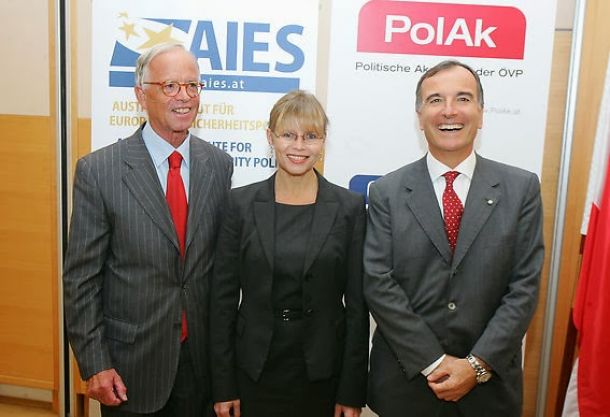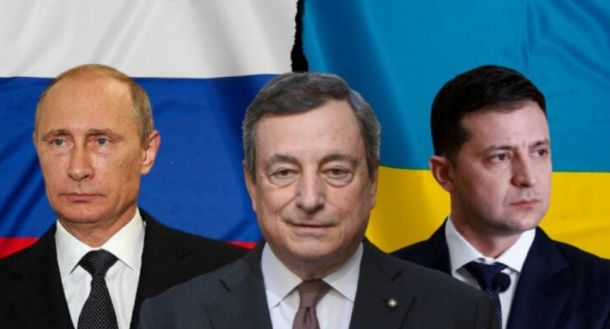Frattini a Reykjavik: il diritto umanitario prevale su qualsiasi altra norma

“L’uso della forza da parte di uno Stato sul territorio di un altro Stato può essere giustificato laddove riconducibile a massicce e gravi violazioni dei diritti umani, in quanto esiste un diritto internazionale naturale di protezione degli individui che prevale su qualsiasi altra norma”, così l’ex ministro degli esteri Franco Frattini al Reykjavík Congress on Human Rights 2013. Una tre giorni di discussione e approfondimento sulla protezione dei diritti umani e sul diritto internazionale, organizzata dal ministero dell’Interno Islandese e dall’Institute for Cultural Diplomacy (ICD). (LEGGI SOTTO I BULLET POINTS DELL’INTERVENTO)
Frattini ha ricordato nel suo intervento il punto di svolta arrivato nel 2001, quando la Commissione Internazionale ad hoc sull’Intervento e Sovranità Statale (ICISS) spostò il dibattito da “diritto ad intervenire” a “responsabilità di proteggere”. “Perché come prevenire e reagire a massicce violazioni dei diritti umani è un affare di tutti”, ha precisato l’ex ministro.
Responsabilità o dovere di proteggere?: questo l’interrogativo posto a Frattini dal Ministro dell’Interno Islandese Ögmundur Jónasson durante i lavori del Congresso. “Il primo responsabile è lo Stato sovrano, che non può commettere o permettere crimini di massa sul proprio territorio – ha replicato Frattini. In secondo luogo, gli attori della Comunità internazionale dovrebbero assistere gli Stati nell’adempiere a questa responsabilità primaria. Infine, se lo Stato non riesce a proteggere da solo il suo popolo, la comunità internazionale ha la responsabilità di garantire tale protezione con tutti i mezzi così come previsto dalla Carta delle Nazioni Unite e dal mandato del Consiglio di Sicurezza”, ha concluso Frattini dopo aver sollecitato un ruolo decisivo di “global player” dell’Unione Europea e ricordato alcuni esempi in cui il tema dei diritti umani ha assunto un valore centrale nella crisi: dal Kenya alla Libia, dalla Siria al Ruanda e Kossovo.
A margine del Congresso, tenutosi presso la sede del ministero dell’Interno islandese, Frattini ha anche avuto due bilaterali con il ministro Ögmundur Jónasson, e con il ministro degli Esteri Össur Skarphéðinsson.

MY BULLET POINTS
Responsibility to protect or duty to protect: new perspectives on UN humanitarian interventions Reykjavik, April 2013
For many decades in the past century, until the end of the Cold War Era, the international Community and the big State powers used to refer to the concept of sovereignty – transformed often in the ideology of Sovereignism – to reaffirm the non –interference principle as stated in art.2 par. 4 and 7 of UN Charter. Use of force by a State on other States’territory can be tolerated just to rescue citizens of the intervening State in grave and urgent danger (e.g. US raid in Teheran to liberate its consular and diplomatic personnel; Israel’s raid on Entebbe’s airport , etc).
So many individual and mass violations of human rights used to take place during these times behind States borders. In the 1990s the international community and the UN became more aware that a lack of international consensus on how to respond to mass atrocity crimes had long led to either inactions or controversial use of force taken without UN Security Council authority.
So the concept of humanitarian interventions was discussed and then put in practice, for example in Kosovo, 1999, to end widespread and grave violations of fundamental rights of citizens of a State, and with no permission of that State, within those territory force is applied.
A first key principle was affirmed. Human rights are non negotiable, and use of force where massive violations take place is justified because a natural legal international right of individuals exists, which prevails on other norms, including those that are in the old reading “pre Cold War” of the UN Charter.
Divisions, within the UN membership, however, did not disappear.
Developing States, in fact, criticized the big powers’ “humanitarian interventions” as greatly driven by National interests rather than humanitarian objectives.
A turning point came when in 2001 the newly established International Commission on Intervention and State Sovereignty (ICISS) shifted from “the right to intervene” to “the responsibility to protect”, with two main consequent key principles:
A) the focus is on the victims of violations and no longer on the intervening States pursuing their national interests.
B) That State sovereignty implies responsibility to protect its citizens; so, if a State is unable or unwilling to protect citizens, it loses its sovereignty and the international community of States is responsible to intervene to protect.
I think that we should, in fact, consider in light of the centrality and supremacy of the human being, that how to prevent and react to massive human rights violations is everyone’s business.
This is why, after the unanimous endorsement of the “responsibility to protect” by UN General Assembly in 2005, rightly Martin Gilbert, the historian, called this norm “the most significant adjustment to sovereignty in 360 years (alluding to the Westphalia Treaty of 1648)”. The key principle behind the responsibility to protect is to overcome centuries of State practice considering sovereignty almost as a licence to kill.
But this new concept, under paragraphs 138 and 139 of the 2005 World Summit Outcome Document, reaffirmed by RES 2006/1647 of UN Security Council, represents also a significant evolution changing the main pillars of the old “humanitarian intervention” of the 90’s.
First of all, I think that R2P involves a whole range of actors, not just those able and willing to use force.
The first responsible is the sovereign State, that mustn’t perpetrate or allow massive crimes on its territory.
Secondly, other actors in the international Community should assist States in discharging that primary responsibility.
Thirdly, and only if the State fails to protect its own people, the wider international community is responsible to provide that protection by every means prescribed by the UN Charter and under UN Security Council mandate.
So, prevention is as- if not more- important as reactions and use of force.
A diplomatic mediation, for example, from UN Secretary General Kofi Annan defused in early 2008 the serious post election ethnic violence in Kenya.
When, on the contrary, condemnations and other prevention measures failed to end violence from Gaddafi’s regime, and civilians in Benghasi were at imminent risk of massacre, Resolution 1973/2011 unanimously adopted, authorised “all necessary means” to protect them; and then the NATO mission started, saving thousands of lives.
After the initial consensus on the Libya’s intervention, a number of emerging States, mainly the so-called BRICS, led by Brazil, started complaining about the management of the mission, and there were discussion on how supplement the R2P concept with a set of criteria to be debated before approving use of force and after, to enhancing monitoring of the management and results of any authorised mission. I think our common interest is to discuss how, not whether to implement the R2P.
We should multiply efforts to work within the multidimensional framework of R2P, being well aware that there alternative would be a return to the days of Rwanda, Srebrenica and Kosovo. No government could afford this option.
In the case of Syria, for example, we could have contributed to avoid the Security Council paralysis, if we had embarked, with the full involvement of all regional and national actors concerned, on deeply discussing and interpreting criteria such as “last resort”, “proportionality” and “balance of consequences”.
This would have helped, for instance, some reluctant states to gradually overcome the negative attitude toward even measures like targeted sanctions or International Criminal Court investigation, because of their concern that next step would be inevitably military action.
This discussion, if properly implemented, should lead to a further step, very useful also to dismiss critics about a UN and international community treating equal atrocities, cases in different ways, depending on national interest and not only on humanitarian reasons.
Recalling that UN Security Council, further to Lybia, continued to invoke R2P on Yemen, Democratic Republic of Congo, and South Sudan, while in Syria the stalemate continues, a question of principle should be raised.
Once all the criteria are met, and – maybe with a more inclusive process of evaluation of the concrete circumstances – it is clear that civilians are victims of mass atrocities, should the international community be responsible or, even more, obliged to act?
Is the R2P leading to a duty- legally defined by criteria enshrined in Res 1647/2006 to protect, so making humanitarian principles prevail over potential or real different national interests for intervening states?
This has not been the case so far. Doctrine and practice don’t consider an absolute duty to intervene, even when criteria are met.
But I think that strong leadership and committed leaders are needed, to work on this.
First of all to understand that prevention, diplomatic mediation, inclusive process of consultation are essential. But also that, at the end, we have to put people first. If it is true (as it should be) that Institutions and States serve citizens, then promoting and protecting human rights everywhere not only can, but must be a priority task for any credible democratic State or international Organisation.




